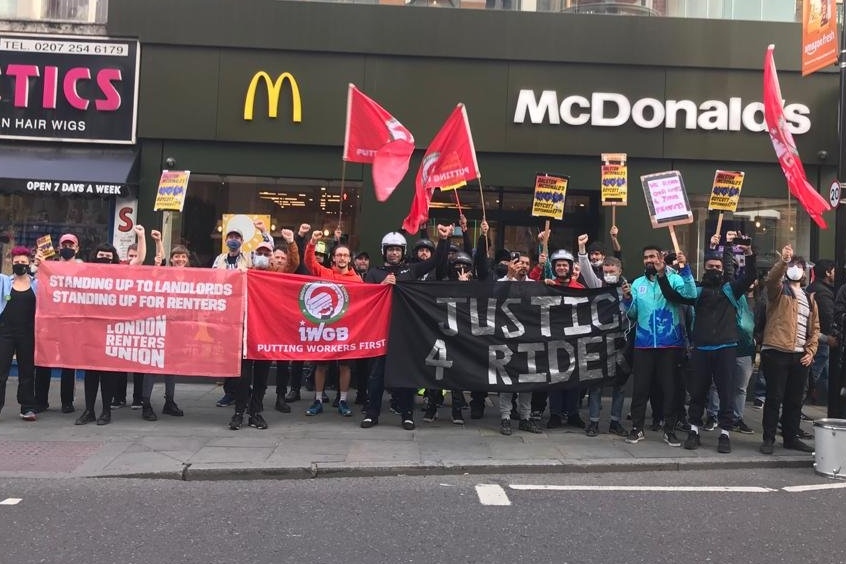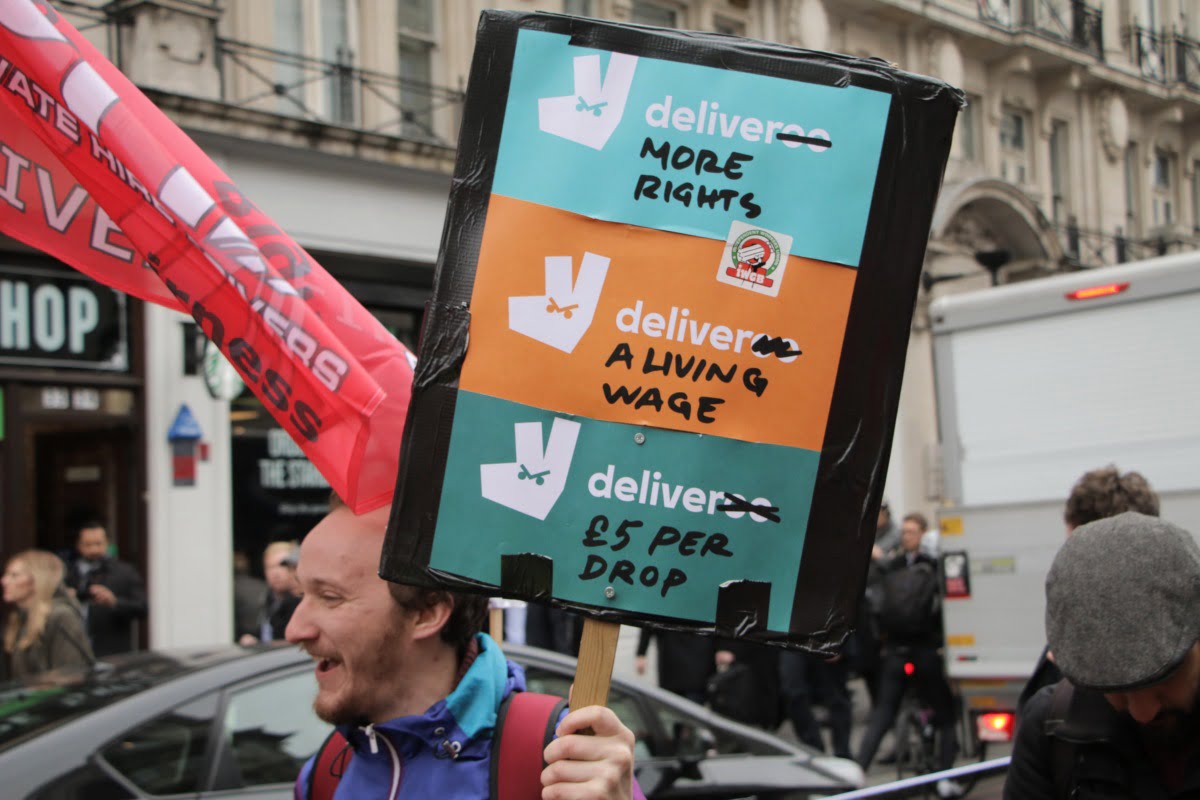Due to the poor pay and prospects on offer, gig economy bosses are struggling to recruit enough drivers. At the same time, precarious workers are getting organised. The labour movement must lead the way with a militant, socialist fightback.
Notorious grifters Uber and Lyft are the latest additions to the ever-growing list of companies complaining of ‘labour shortages’. They are joining a chorus of capitalists bemoaning that furlough schemes have encouraged widespread idleness.
But the truly idle ones are the bosses and billionaires, who have been sitting pretty whilst workers have been forced to put everything on the line.
Gig economy bosses claim that generous benefits have made it impossible for firms to recruit diligent workers. This is the reason given for the 79% hike in Uber fare prices since the second quarter of 2019. Drivers, meanwhile, are expected to take less of a cut.
This Victorian eulogising of the feckless poor is a thin facade, behind which lies the most rotten exploitation of workers.
The reality is that drivers – overworked and underpaid – are looking for other jobs that offer better conditions, pay, and prospects.
This is the reason for the crisis Uber now finds itself in – a crisis of their own making.
Fiction of freedom
 Uber, along with other employers in the so-called gig economy, have hailed the flexibility that working for them allows. The complete lack of a contract or any other guarantees is presented as liberating – putting power into the hands of individual drivers. This is complete fiction.
Uber, along with other employers in the so-called gig economy, have hailed the flexibility that working for them allows. The complete lack of a contract or any other guarantees is presented as liberating – putting power into the hands of individual drivers. This is complete fiction.
Drivers and couriers have the flexibility and freedom to drive through the streets for hours on end looking for clients, in a desperate scramble to make ends meet.
The pandemic has highlighted that the real ‘flexibility’ is that enjoyed first and foremost by the bosses.
At the end of 2019, Uber had roughly five million drivers working for them across the world. Yet by April 2021, it had only paid 1,400 drivers any form of sick pay. So difficult is it for workers to claim sick pay, that many have been forced to work when ill – undoubtedly contributing to the spread of the virus.
“Like a slave”
 Even outside the pandemic, chronically low wages mean Uber drivers are not ‘liberated’, but are forced to work long hours in order to scrape by.
Even outside the pandemic, chronically low wages mean Uber drivers are not ‘liberated’, but are forced to work long hours in order to scrape by.
“I already go nights without eating or sleeping,” says one former driver, quoted in a Vice article. “My back hurt, my joints hurt, my neck hurt. I felt like a donkey. Like a slave driving all the time.”
This is a damning indictment of the company. And it is by no means an isolated experience.
A shocking new study by the TUC, for example, has found that precarious work has exploded in recent years, with 15% of workers in Britain (4.4 million) now engaged in the gig economy. This represents a 250% increase since 2016.
The crisis of capitalism has thrown millions of workers out of secure employment, forcing them to turn to precarious work. When the system demands it, the bosses are forced to squeeze ever more.
Fighting back
Significantly, however, workers are not just taking this lying down. Far from accepting their lot, precarious workers are increasingly getting organised and fighting back against the low pay, long hours, and insecurity that underpins the gig economy – and capitalism more widely.
On 10 November, for example, there was a strike of Deliveroo and UberEats couriers in Hackney, London, dubbed the ‘Roovolt’.
This was organised by the IWGB union, with riders’ demands including the provision of basic amenities, such as access to toilets and shelter for their bikes. Even this is being denied to them by multinationals like McDonald’s, with the complicity of local councils.
? Justice for Riders! ?@RidersRooVolt are demanding free and safe parking while delivering for @McDonalds so they can:
? do their jobs properly and earn a living!
? be free from £65 parking fines and harassment!
? stay safe and have access to a toilet!Share & RT! pic.twitter.com/PRmqbsAEOB
— IWGB (@IWGBunion) November 12, 2021
For years, these workers were deemed impossible to organise by some union leaders. Such was the ‘new realism’ of the old union bureaucracy. Yet smaller unions like the IWGB and BFAWU have thrown down the gauntlet, showing that militancy pays.
This, in turn, has helped to push larger unions, such as Unite, into taking bold action – for example, against fire and rehire.
Systemic scourge
With vast swathes of workers now facing attacks and uncertainty, anger and indignation is on the rise.
The growing militancy of precarious workers must therefore be seen as part of a broader trend of workers moving into struggle on the industrial plane, which is beginning to transform the trade unions in Britain.
It is vital that these struggles are linked up. And to do so, the unions must be clear that low pay, long hours, and poor working conditions are not mere accidents; not the fault simply of this or that employer.
Rather, these are all symptoms of the decrepit, crisis-ridden capitalist system. Only by overthrowing this dog-eat-dog system of profit and competition can we bring an end to the wretched gig economy and the scourge of precarious work.






